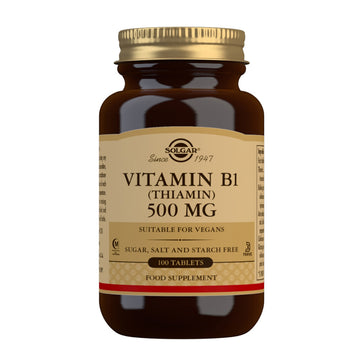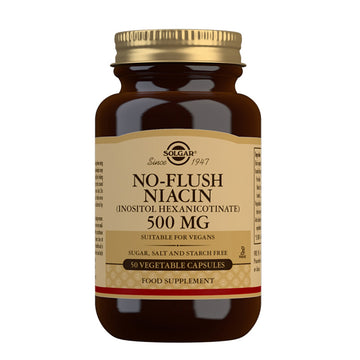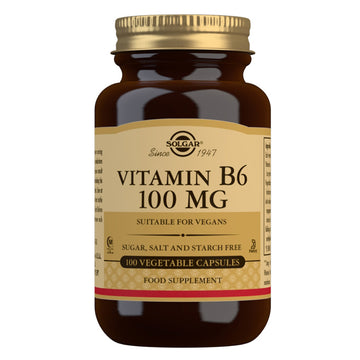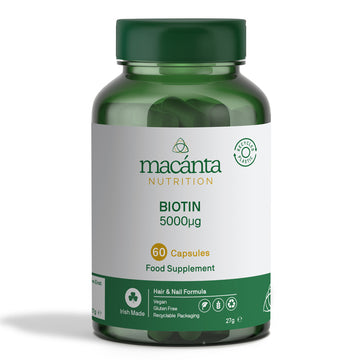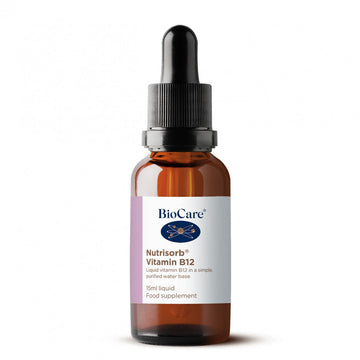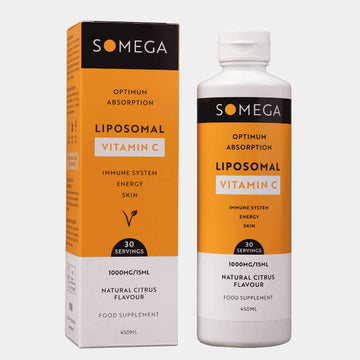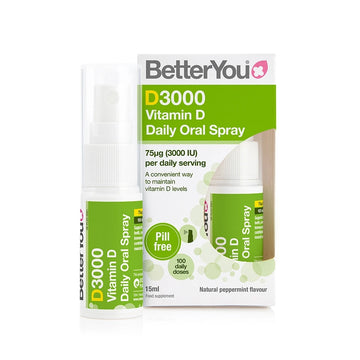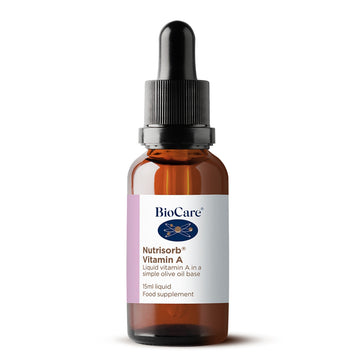While a lot of us spend quite a bit of time eating food (and thinking about what we want), we give very little thought to what happens to it afterwards. That is, until something goes wrong... and we really know about it. The likes of heartburn, indigestion, acid reflux, trapped wind, IBS, bloating, and constipation can all be very uncomfortable - if not downright painful and inconvenient. Your digestive system relies on certain vitamins to function and prevent some of these ailments. Some vitamins are more important that others so we've outlined the essential vitamins for digestive health below.
The Digestion System
The digestive system extracts and absorbs energy and nutrients from the food we eat. It is one of those natural processes that we very rarely think about unless something goes wrong. More and more people are relying on highly processed convenience foods, and not drinking enough water which leads to digestive health problems.
The digestive system is incredibly complex and requires lots of energy and a good balance of natural bacteria for optimal health. If you're wondering how to look after it, here are some essential vitamins for digestive health that are sure to help.
The Essential Vitamins for Digestive Health
Get to know the essential vitamins for digestive health with this handy guide which includes where you can source them.
B Group Vitamins
The B Group have a rake of vitamins that are essential for digestive health.
Thiamine
Thiamine (otherwise known as vitamin B1) is essential for converting dietary carbohydrates and glucose into energy for the body’s cells, and may also aid in the regulation of appetite. Even a slight B1 deficiency can lead to arrested growth in children and can cause indigestion, fatigue and constipation at all ages.
Riboflavin or B2
Vitamin B2 helps with the release of energy from food by oxidation and the utilisation of amino acids.
Niacin
Also known as vitamin B3 or nicotinic acid, it is also important for the release of energy from carbohydrates and other digestive tract functions, including the breakdown of fats and alcohol. It’s also known as the anti-pellagra (a disease causing severe vomiting and diarrhoea) vitamin.
Vitamin B6
Vitamin B6 is also known as pyridoxine. It allows the body to use and store energy from protein as well as helping to form haemoglobin for transporting oxygen around the body.
Biotin
Biotin is an essential B-complex vitamin which helps produce cholesterol, key for metabolism of carbohydrates and fatty acids.
Vitamin B12
Vitamin B12 helps the body process folic acid and release energy from carbohydrates. A vitamin B12 deficiency can cause anaemia and reduced energy levels.
Where to find Vitamin B:
- milk and dairy products
- eggs
- whole grains such as brown rice and barley
- meat and fish
- legumes - beans and lentils
- seeds and nuts
- dark leafy veg such as spinach and broccoli
- fruits - avocadoes, bananas, citrus fruits
Vitamin C
Also known as ascorbic acid, vitamin C has many functions in the body and historically was known as the anti-scorbutic, or against scurvy vitamin. Most widely known as an antioxidant vitamin, it’s usually associated with strengthening the immune system and preventing colds, but it’s also absolutely essential to help the body fully absorb iron from foods.
Vitamin C is crucial in supporting the digestive process from the start as it helps maintain the health of teeth and gums too. It also aids in the production of collagen, for maintaining all the connective tissues of the digestive tract.
Where to find Vitamin C:
- citrus fruits
- strawberries
- peppers
- broccoli
- blackcurrants
- brussels sprouts
- potatoes
Vitamin D
Vitamin D was, up until recently, called the calcifying vitamin as it’s essential for the absorption of calcium. It is vital for the formation and maintenance of strong teeth and bones, with a deficiency leading to rickets in children and osteoporosis later in life. Calcium is also beneficial for good heart health and key to how your nerves, muscles, and immune system function.
Where to find Vitamin D:
- oily fish such as salmon and sardines
- red meat
- egg yolks
- liver
- fortified foods such as cereals
Although the best source of Vitamin D is sunlight hence it’s often known as the sunshine vitamin - a supplement can often be useful now many of us stay out of the sun.
Vitamin A
The surfaces of the digestive and excretory tracts are lined with mucous membranes which secrete compounds that help with digestion. For example, the mucosal lining of the stomach secretes stomach acid and also absorb nutrients from food. If these mucosal tissues are compromised, digestion and absorption of nutrients are affected, causing deficiencies. Vitamin A nourishes these tissues, helping to ensure that every part of the digestive tract functions properly.
Where to find Vitamin A:
- cheese
- eggs
- oily fish
- milk and yoghurt
- liver
- yellow fruit such as mango
- yellow, red and green (leafy) veg for example sweet potatoes, red peppers, spinach
Essential Vitamins For Digestive Health: Overview
As the digestive process is the way in which the body gets virtually ALL its nutrition and energy, it is of paramount importance that it's kept healthy in order for optimal function, so it's really useful to know exactly which vitamins can support that. As with any vitamins and minerals, by far the best way to get enough is to eat a varied and healthy diet, but that’s not always possible.
For example, vegans may particularly struggle, as will fussy children and anyone with a poor appetite (ironically those for whom it could matter most) and with many vitamins destroyed by the preparation or cooking process, it can really make good sense to take a high quality supplement tailored for your needs.
Overindulged? Here's how to choose the right digestive enzyme for you.
Please note, this blog is for informational purposes only and should not replace medical advice.
It’s always best to consult your doctor before taking any new supplements, treatments or remedies if you are pregnant, breastfeeding or on medication.
Checked and updated: 2 September 2021



